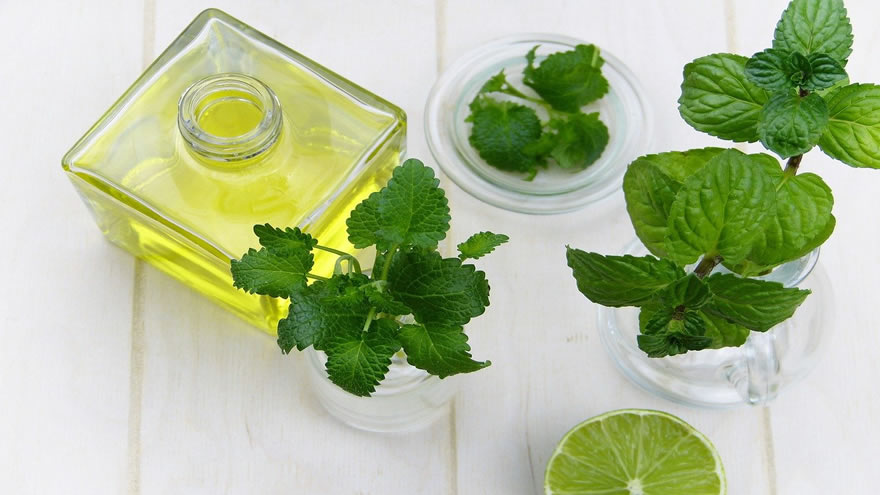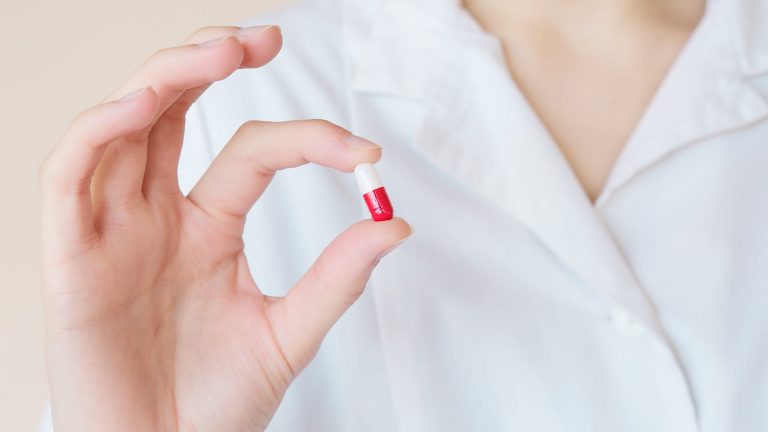
I was talking to a friend this morning and I mentioned to her peppermint oil for IBS. IBS affects so many people and the exact cause is unknown. People suffering from IBS have very active peristalsis or muscle movement in their digestive tract. Symptoms vary and can include abdominal pain, gas, bloat, diarrhea, and constipation.
For some people, lifestyle and following a certain diet (Fodmap for IBS, more about that later) help with these symptoms. A few drugs are available for IBS and other people find that a more natural solution helps in managing symptoms.
Experts suggest that eliminating foods that exacerbate your symptoms is a good place to start.
Avoiding gluten helps some, and a high fiber diet is usually recommended.

First, what is peppermint? Peppermint is an aromatic herb belonging to the mint family and is a cross between spearmint and watermint. It grows in North America and Europe. Oil is extracted from the leaves.
Peppermint oil comes in various forms:
When peppermint is distilled from the peppermint plant it contains the volatile compounds of menthol, menthone, and iso menthone. Menthol is the most prominent of the three providing the peppermint taste.
Sometimes peppermint oil is used topically to rub into the skin and is used in the cosmetic industry.
Peppermint oil benefits many symptoms and there is quite a long list of other things including.
So peppermint oil has many benefits, making it a good product to have at home.
Peppermint oil is also used in dental hygiene products and also for cough drops as the menthol helps to clear our head when we have a cold.
Sometimes peppermint oil is used topically to rub into the skin and is used in the cosmetic industry.
Its main purpose in digestive disorders is to contain the perimeters of the bowel, relieving distension and particularly useful in diverticular disease, another disorder that affects many people. It achieves this by acting as an antispasmodic, calming the overactive area and normalizing the bowel.
Peppermint oil for IBS can calm the peristalsis down reducing stomach pains and cramps. This does not mean that it is a cure for IBS, but just being relieved of some of the symptoms can be a great benefit to sufferers of the condition.
When you have IBS, the receptors in your intestines are sensitive and causing problems often after eating. Most of the symptoms are commonly reported as abdominal cramping and can be calmed with natural treatments like peppermint oil.
Some people also suffer nausea when they have severe IBS symptoms, and many found that peppermint oil relieved nausea. In pregnant women with nausea, peppermint oil is safe to take and can make them feel better and relieved them of their abdominal symptoms.
When peppermint oil is taken as a supplement, it has the following benefits:
If you are lacking in energy following bouts of IBS, try peppermint tea as an energy boost, and to reduce daytime tiredness. The natural compounds appear to boost energy levels, and relieve daytime sleepiness.
Peppermint oil is now being trialed for use in abdominal pain in children. Children often suffer unexplained abdominal pain and some are admitted to the hospital. When nothing of significance is found in the investigation, peppermint oil is given and has been found to reduce the duration of the severity of the attack. This being perfectly safe, the parent is able to administer peppermint oil at home when the next attack occurs. The child may or may not have IBS, as a diagnosis is not usually made this early.
There has been various research studies which have been done to find out which is better, peppermint oil or a placebo, in helping reduce IBS symptoms. The results have shown that peppermint oil is safe and effective therapy for relieving abdominal pain and other symptoms in adults with IBS.
The American College of Gastroenterology recommends peppermint oil as a front-line treatment as studies have shown peppermint oil to be as effective as prescription antispasmodics.
Essential oils are liquids containing distilled plant compounds, the essence of the plant. The findings say that peppermint oil for IBS is effective as an antispasmodic medication and eases pain. Some antibiotic properties were found in peppermint oil, but studies are continuing.
Essential oils require dilution before use. The oil is mixed with a carrier oil like olive oil, as you may be applying them topically and they are very strong. You may be putting them into a diffuser, as this is calming and relaxing to many, and has been found to boost mood. If you put the peppermint oil into your diffuser, it may be enough to calm your IBS. Read the instructions on the diffuser, as they all work a bit differently.
Some experts suggest that you start with aromatherapy to see if you respond to it. Using essential oils through a diffuser is very relaxing, and if you find that this helps you to relax and eases your abdominal symptoms, move on to a therapeutic dose of peppermint oil for IBS. Peppermint oil has been used in clinical trials and is safe if taken in the correct dose.
Essential oils are not meant to be taken orally. If you took a really strong dose, it could cause toxicity, heartburn, nausea and vomiting.
As mentioned before, the essential oils are for aromatherapy. If you have pets and small children, keep them away from the undiluted oils as they may be toxic if ingested.
Never apply peppermint oil to the skin of a baby, as it may be too strong for them.

The best peppermint oil for IBS is in an enteric-coated capsule form to get the measured dose absolutely accurate. The other reason to take a capsule is that it doesn’t dissolve until it reaches the intestines releasing the peppermint oil to where it is needed. If you are taking it as a liquid, it may cause heartburn.
When you are purchasing your peppermint oil for IBS (in capsule form), buy from a reputable supplement company, the sort of supplements found in pharmacies, and not a backstreet herbalist. If you see a naturopath or holistic health practitioner they usually will suggest certain brands which manufacture high quality peppermint oil.
The National Institute of Health (NIH) suggests that when you buy a product, look for one that contains a seal of approval from a third party that does quality testing.
The recommended dose for adults is 0.2 ml to o.4 ml. x 3 daily. (WebMD.com) Peppermint oil for IBS has been used in clinical trials and is safe if taken in the correct dose.
They do not dissolve until they reach the intestines, and it is usually recommended that you take two capsules three times a day.
Some literature says that there is no recommended dose, but obviously, it is better to be cautious, as some people who took too much, reported mouth sores. So stick with the standard dose given to you by your health practitioner.
If you are diluting your peppermint oil for topical use, only place a few drops in an ounce of carrier oil.
 When you have IBS, high fiber foods are important. Eat plenty of broccoli, lentils and beans. Avoid carbonated alcoholic beverages, wheat barley and rye.
When you have IBS, high fiber foods are important. Eat plenty of broccoli, lentils and beans. Avoid carbonated alcoholic beverages, wheat barley and rye.
Fruits to be eaten include bananas and passion fruit. Fiber will reduce your symptoms of IBS. Look for low-fat foods that will enrich your diet, as fats often make the symptoms worse. For breakfast switch to oatmeal, no sugar and add whole grain products to your diet. Watch out for foods that may trigger your IBS. Sometimes cookies and coffee, or even cakes can cause a problem.
If you consult a dietician, he/she will help you to map out the right meal plan for you, as everyone has slightly different symptoms of IBS and different triggers.
Pain can interfere with our daily routine, and apart from a good healthy diet high in fiber, an exercise program will help you to stay well.
Walking is very good exercise and if you are feeling bloated, a daily walk is often what you need, followed by lots of water to flush away the toxins from your system. Exercises targeted at strengthening your abdominal muscles may also help.
A low-FODMAP diet might improve digestive symptoms in adults with IBS. It should only be followed for a short time, as in the long term it could be detrimental to the gut bacteria. The FODMAP diet is free of gluten, so if you respond favorably to this diet, it is worth being tested for gluten intolerance. The diet essentially restricts all fermentable carbohydrates and is useful in managing IBS flare-ups where bloating is present.
If you are taking peppermint oil for IBS and still having flare-ups, it may be worth trying the FODMAP diet for 6 to 8 weeks. The low FODMAP diet was developed by a research team at Monash University in Melbourne, Australia to control IBS symptoms in their patients.
Short-chain carbohydrates, lactose, fructose, sorbitol, fructans and galacto-oligosaccharides, can induce discomfort in the gastrointestinal tract, like the symptoms of irritable bowel disease. Dietary restrictions of short-chain carbohydrates were associated with an improvement in symptoms.
The original rationale behind the diet was that reduction of dietary short-chain carbohydrates would minimize stretching of the intestine wall, and in turn, would calm the gut’s nervous system. Originally the diet was not completely researched, but now the gaps have been filled in and it has been found to be useful for those with IBS.
Peppermint oil for IBS can certainly calm the symptoms and make the condition much easier to manage.
With most people, IBS seems to appear suddenly, and sometimes when we are drinking alcohol and eating rich food it suddenly starts. When this happens, it is better to start to manage it as quickly as you can because otherwise, it will get worse.
It is always interesting that old natural remedies are often the best remedies, so if you are suffering from IBS, get your peppermint oil or capsules and start managing the symptoms better.
References:
https://www.webmd.com/ibs/peppermint-oil-works
https://www.healthdirect.gov.au/bloating
https://www.verywellhealth.com/aromatherapy-and-essential-oils-4013141
https://www.verywellhealth.com/peppermint-oil-for-ibs-1945342
https://blog.metagenics.com/post/2020/01/27/peppermint-oil-uses-and-benefits-for-digestive-health/
https://pubmed.ncbi.nlm.nih.gov/20136989/
https://www.ncbi.nlm.nih.gov/pmc/articles/PMC6337770/
https://pubmed.ncbi.nlm.nih.gov/29950604/